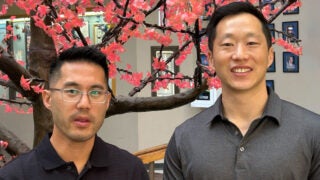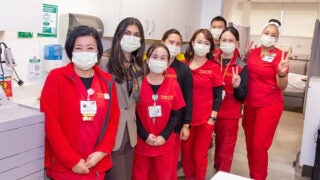USC Price grads Thomas Wong and Paul Lee joined with their fellow city officials and non-profit organizations to hold community events to bring people together.
News Listing
The analysis is the first to control for the effects of tobacco smoking, a factor that likely obscured the heightened risk in earlier studies.
The No. 2 Trojans took down No. 1 UCLA 14-11 in the MPSF title game on Sunday. Up next: the NCAA tournament on Dec. 5-7.
The young women, who represent the 2026 Tournament of Roses, toured the hospital, met with patients and staff, and gained insights into the latest cancer breakthroughs.
The restored field at Manzanar Relocation Center celebrates the resiliency of so many prisoners and memorializes this dark period in U.S. history. Susan H. Kamei of USC Dornsife’s Spatial Sciences Institute shares their story.
New USC research shows that natural ups and downs of the workplace influence can sharpen focus, fuel motivation and support goal pursuit.
Less-educated and lower income neighborhoods are consistently farther away from cultural institutions that can help advance social mobility, according to a study co-authored by USC Price Professor Elizabeth Currid-Halkett.
Nearly half of county residents surveyed believe their neighborhoods have enough tree cover‚ even though most live on streets with little to no shade.
Falling birth rates and lower migration are reducing the number of young people, while older residents age in place. USC Price’s Dowell Myers looks as the “top heavy” age imbalance and offers ways to cope with it.
PODCAST: In the third installment of his podcast, USC’s interim president sits down with the former Google CEO to discuss the rapid evolution of AI and what it means for higher ed.










